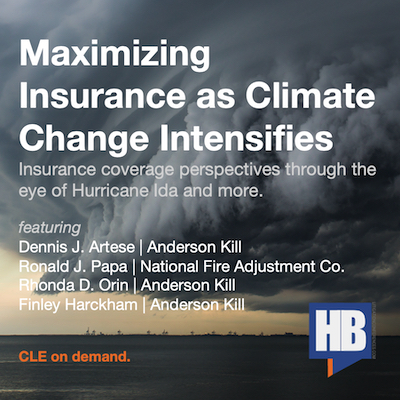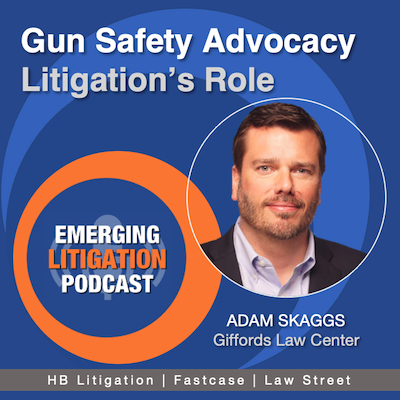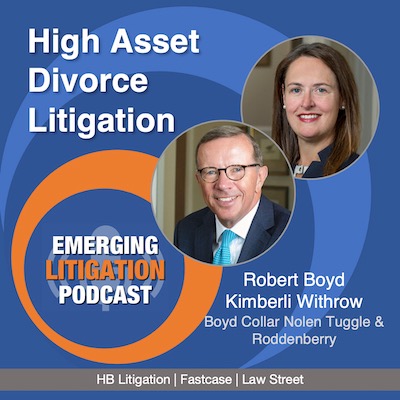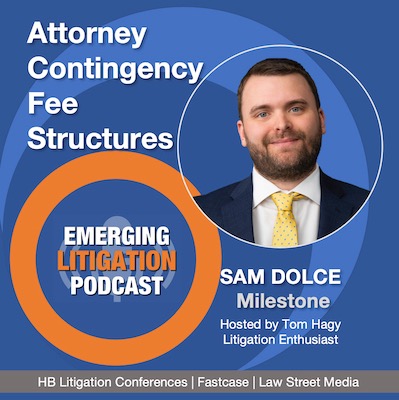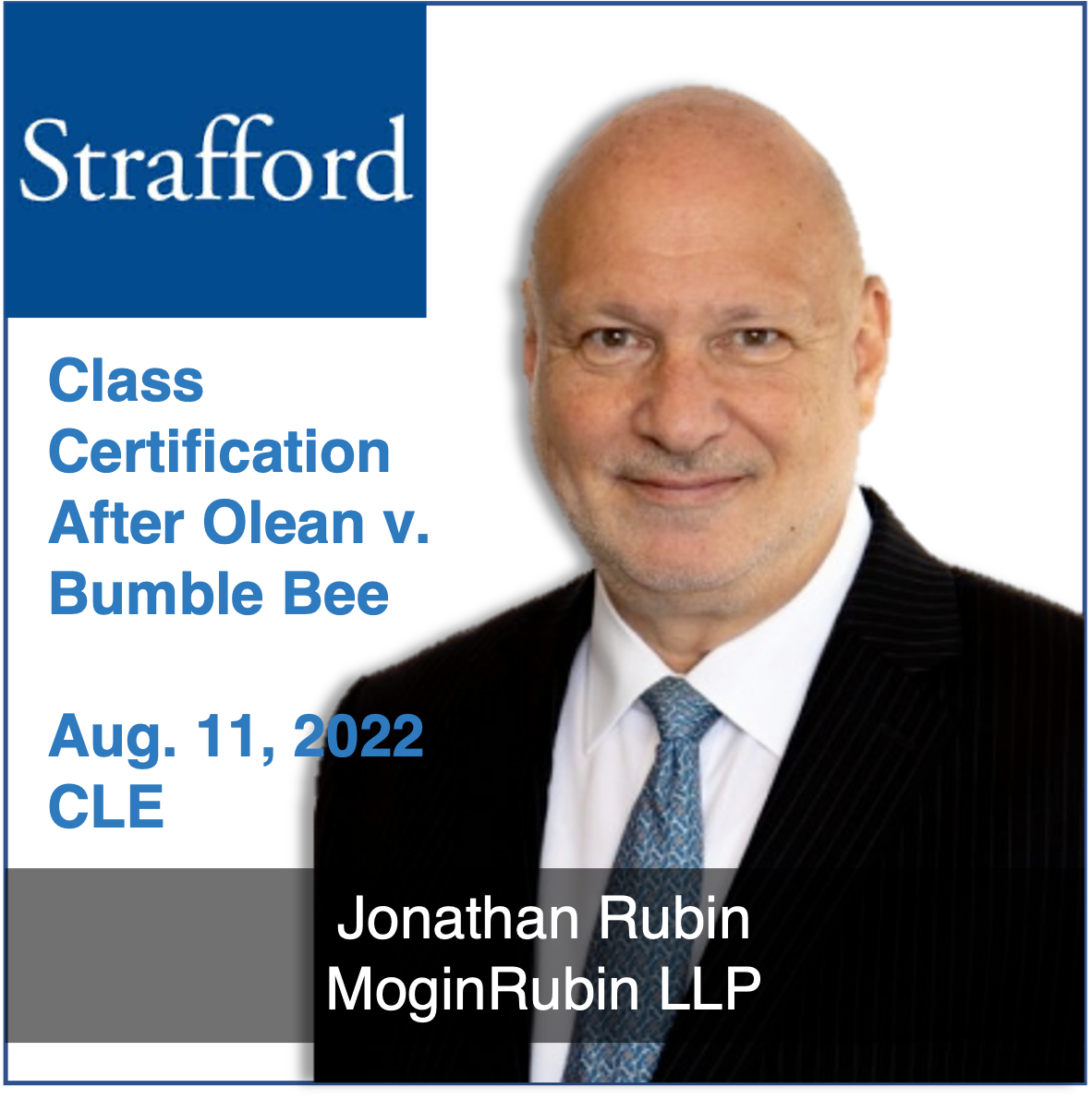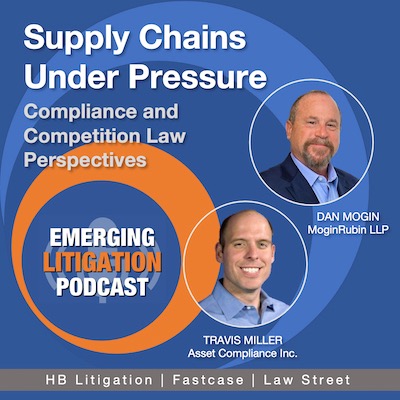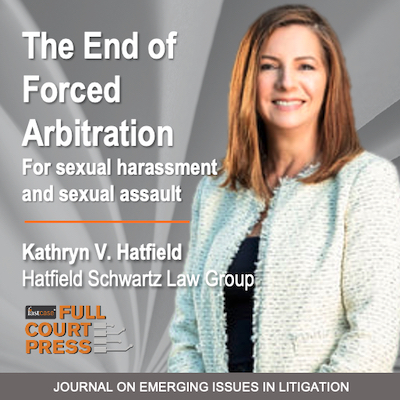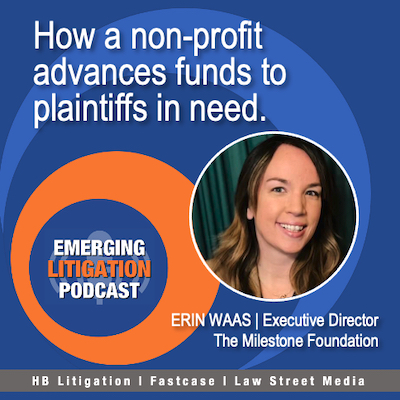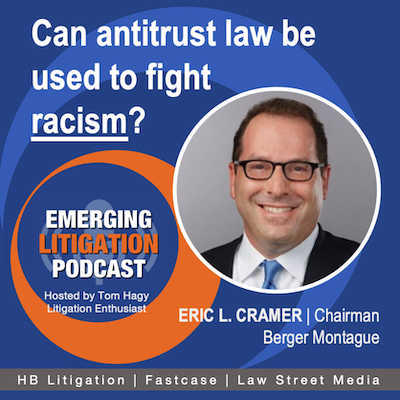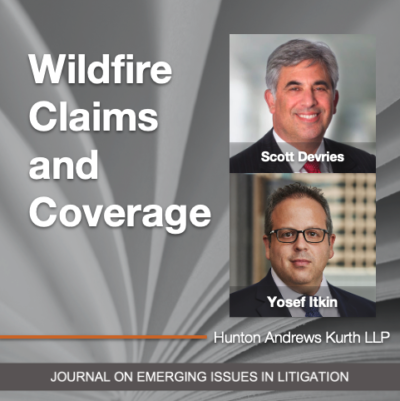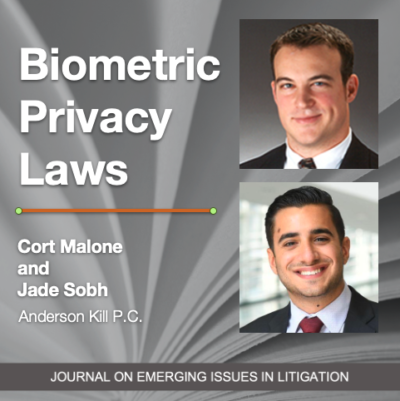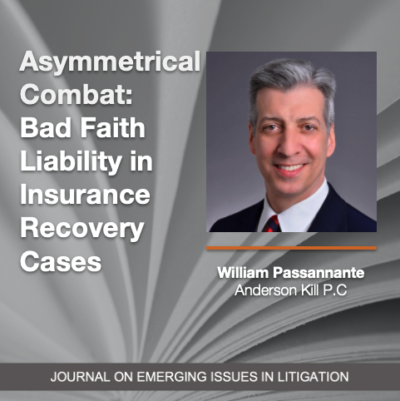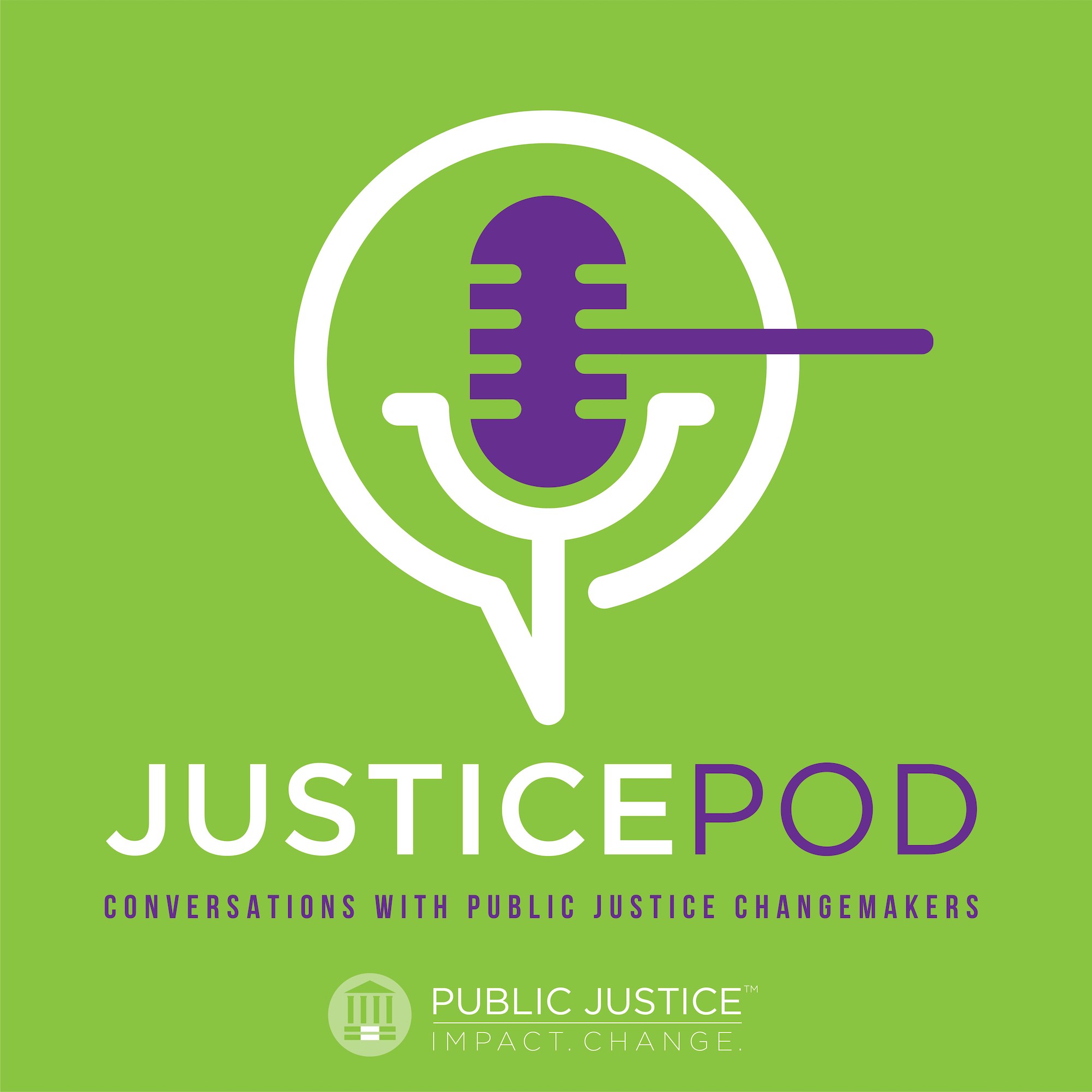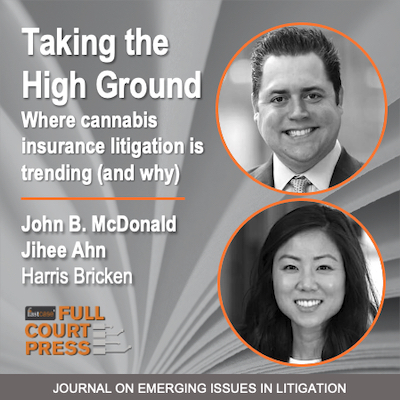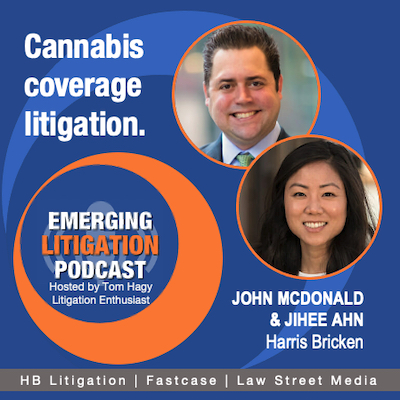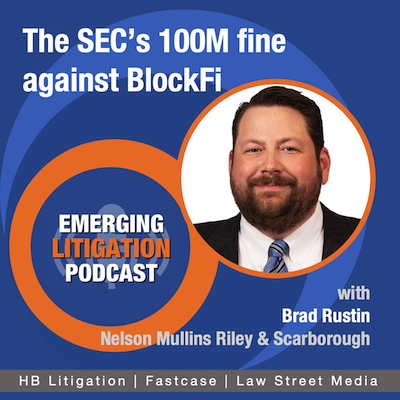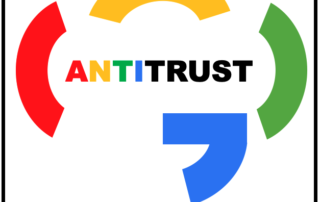Emerging Litigation Podcast
The Corporate Transparency Act: A New Effort to Fight Money Laundering with Lori Smith
In this episode, we discuss the Corporate Transparency Act (CTA) with Lori Smith of Stradley Ronon, including the key facets of the Act's requirements, potential penalties, and chances for litigation. As Lori notes, "the U.S. is one of the few countries in the world where you can form entities, and nobody can tell who owns them". The CTA aims to prevent this from being the case. Listen and learn more!
Litigators, YES Litigators: One Attorney’s Journey Within and Without the Legal Industry
In this episode, we discuss all the things one former litigator, Somya Kaushik, Senior Corporate Counsel at Mineral and Adjunct Professor of Law at Lewis & Clark Law School has done, and the advantages she feels a litigator can bring to a small company – one that isn’t embroiled in litigation (and would like to keep it that way). As she notes, "a litigator is well-positioned to identify actual but often overlooked legal risks, effectively mitigating issues and reducing both business and legal risks". Listen and learn more!
Massive Mass Tort Settlements and Liability Forecasting
In this episode, we discuss Liability Forecasting and the role it plays in the administration of massive, sometimes multi-billion-dollar mass tort settlement trusts with guests Mark Eveland and Ed Silverman of Verus LLC, which provides litigation support services to law firms working on mass torts, such as case management and medical review services, settlement administration, business and advisory services, and analytics. Liability forecasting mechanisms were built to fairly and judiciously compensate current and future claimants for their injuries. Listen and learn more!
A Shameless Plug for Our Content Services
Your content marketing is everything you’ve ever dreamed of. Right?

Critical Legal Content was founded by Tom Hagy, former Editor & Publisher of Mealey’s Litigation Reports and VP at LexisNexis, founder of HB, current litigation podcaster and editor-in-chief. CLC’s mission is to help smaller firms and service providers not only create content — blogs, articles, papers, webinars, podcasts (like the stuff on this site) — but also to get it out there. How? Via social media, this website, your website, and potential via our podcast and journal which we publish in collaboration with vLex Fastcase and Law Street Media. The goal is to attract readers and dizzy them with your brilliance.
*Inspired by actual events.
Create content like a real legal publisher.
Emerging Litigation Journal
Fall bellwether trials for social media addiction cases to test novel legal theories
Are social media platforms the next Big Tobacco? A major lawsuit argues they’re designed to be addictive—will the courts agree? Justin Ward explores the upcoming bellwether trials against major social media platforms like Instagram, TikTok, Snapchat, and YouTube. The consolidated lawsuits, involving over 1,900 claims, argue these platforms are deliberately designed to exploit young users and cause addiction—drawing comparisons to cases against nicotine and opioids. Ward examines the complex legal challenges, including First Amendment issues and Section 230 protections, as courts determine whether these claims of negligence and failure to warn will move forward. The trials could set major precedents for social media regulation and corporate accountability.
22 States Sue New York Over Climate Fund, Calling It an ‘Unconstitutional Shakedown’
Tim Zyla examines the high-stakes legal battle between New York and a coalition of 22 states, led by West Virginia, over the state’s newly enacted Climate Change Superfund Act. The law requires energy producers to pay $75 billion over 25 years to fund climate damage recovery efforts. The lawsuit, filed in federal court, argues that New York’s law is unconstitutional, overreaches state authority, and unfairly targets out-of-state energy companies. Plaintiffs claim the Act violates multiple constitutional provisions, including the Commerce Clause, Due Process, and Equal Protection Clauses, as well as federal environmental law. Meanwhile, a pro se West Virginia resident has filed a motion to dismiss the case, defending New York’s actions as necessary for public health and climate accountability. Zyla highlights how this case could set a major precedent for state-level climate initiatives and corporate liability for environmental damage.
When Litigation Financing Goes Wrong, Who Pays?
The bankruptcy of Houston's AkinMears LLP highlights the risks of relying too heavily on third-party litigation financing and the broader implications for transparency, regulation, and financial sustainability in mass torts. The firm filed for Chapter 7 bankruptcy citing more than $200 million in debt owed to litigation funding companies Virage SPV 1 and Rocade Capital. According to Bloomberg Law’s U.S. Bankruptcy Tracker, AkinMears LLP was the only U.S. law firm filing for bankruptcy in January 2025 with $50 million or more in liabilities. In total, 12 large law firms declared bankruptcy in January 2025, up from seven in January 2024 but slightly below the 17 cases recorded in January 2023. Read our report by guest contributor Jennifer Holmes.
HB Webinars on CeriFi LegalEdge
The Antitrust Case Against Google
The Antitrust Case Against Google Perspectives from highly regarded competition law attorneys, litigators, and economists. This overview and Q&A has been developed for advertisers, mobile device makers, app developers, corporate counsel, business writers, and search market participants. The U.S. Department of Justice and 11 states have filed a sweeping antitrust suit against Google alleging the tech giant abuses its position as "monopoly gatekeeper for the internet" to block competitors. The complaint says Google has used anticompetitive tactics to maintain and extend its monopolies in the markets for general search services, search advertising, and general search text advertising. The federal and state governments charge Google uses "exclusionary agreements, including tying arrangements" to "lock up distribution channels and block rivals." Google's considerable wealth helps make this happen. Google pays billions of dollars a year to distributors to secure their position as the default search engine, and prohibits these companies from dealing with Google competitors. Google's exclusionary strategy is being applied more harshly in newer technologies, such as voice assistants, and in its goal of dominating other platforms in the IoT category, such as smart speakers, home appliances, and autonomous cars. Without a court order, the government plaintiffs say, "Google will continue executing its anticompetitive strategy, crippling the competitive process, reducing consumer choice, and stifling competition." What does all of this mean to actual or potential rivals, ad buyers, consumer, developers, and device makers in three markets Search Service, Search Advertising, and Search Text Advertising? What type of defense might Google mount? What might the ultimate resolution look like? Join our panel, led by competition law thought leaders, as they address the potential impact of the litigation and answer your questions via live chat. • Setting the stage: What constitutes an illegal monopoly? • Lessons from United States v. Microsoft? • How does the government define the three markets? • What is in the [...]
Organizational Values & Business Risks: Properly Balancing Stakeholder Concerns
Accommodations. Appropriate accommodation for high-risk employees or employees with family members who are at a heightened risk. Mitigation. Attention to means of mitigating transmission and infection. Tracing. Contact tracing and management of data collected, including health data, as well as responses to employees who refuse to report. Patient Sensitivity. Duty to avoid discrimination and stigmatization. Preparedness. Developing plans to address possibility of re-occurrence in the fall and managing possible outbreaks in company’s offices. On-demand on the Thomson Reuters West LegalEdcenter as part of the HB catalog. Organizational Values & Coronavirus Business Risks: Properly Balancing Stakeholder Concerns Produced for Emory University Center for Ethics by HB Litigation Conferences The current pandemic confronts businesses, nonprofit organizations, governments, and the legal profession with innumerable ethical challenges. Management issues and liability concerns, stakeholder demands and legal duties become even more complex in an environment of uncertainty and one where the consequences could result in serious illness or even death. This program seeks to engage the participants in thinking through these challenges and developing processes of ethical response to them. Managers must acknowledge and address the framework of fear associated with the pandemic, ranging from fear of contagion and death to fears of unemployment, childcare, and the duties of home-schooling. Additionally, as the economy reopens there must be serious attention to the processes of doing so. Join Professor Edward L. Queen from Emory University for invaluable insights. Emory's medical team was on the frontline of the 2014-2016 Ebola epidemic, which began in December 2013 when an 18-month-old Guinean boy contracted the disease. According to the CDC, the outbreak ended with more than 28,600 cases and 11,325 deaths. Eleven people were treated for Ebola in the United States. Edward L. Queen Director of Ethics and Servant Leadership Emory University Professor Edward L. Queen Edward L. Queen is director of [...]
Contract Drafting Fundamentals
Register Now Contract Drafting Fundamentals: What I Wish They Taught Me in Law School Speaker: Will Marshall | Partner UBM Law LLP Date: Thursday | July 23, 2020 Time: 2pm ET 1pm CT 12pm MT 11am PT Duration: 75 minutes Price: Early Bird Registration: $75 After July 14: $95 Special: Complimentary with discount code! What you get: CLE credit Course materials Webinar recording Answers to your questions! Contact CLE Manager Get practical insights on contract drafting. For new and seasoned attorneys alike, this 75-minute program will cover core, practical aspects of contract drafting, including a broad range of fundamental concepts, skills, and tips. The program is designed to make you a more deliberate drafter and improve your ability to assess the purpose and effectiveness of each provision in your contract. We will discuss not only what is on the page, but external dynamics that affect drafting and negotiation. Finally, we will reserve time to answer your questions. I am offering this program for free to my network to help you develop these foundational skills. If you haven't received it, please contact me directly for the complimentary pass code. -- Will Marshall, Partner, UBM Law Group LLP Key topics: The goals and challenges of good drafting. The anatomy and building blocks of a contract. Categories of contract language. Typical sources of ambiguity. Tips on everything from file naming conventions to how to draft a nested signature block and what a tipping basket is. Your questions via live chat or by email before or and after the event. Send Will a Question Meet our panelist. Will Marshall | Partner UBM Law Group, LLC Will is a co-founder of UBM Law Group. He has substantial experience in drafting and negotiating a wide range of commercial contracts, including [...]

